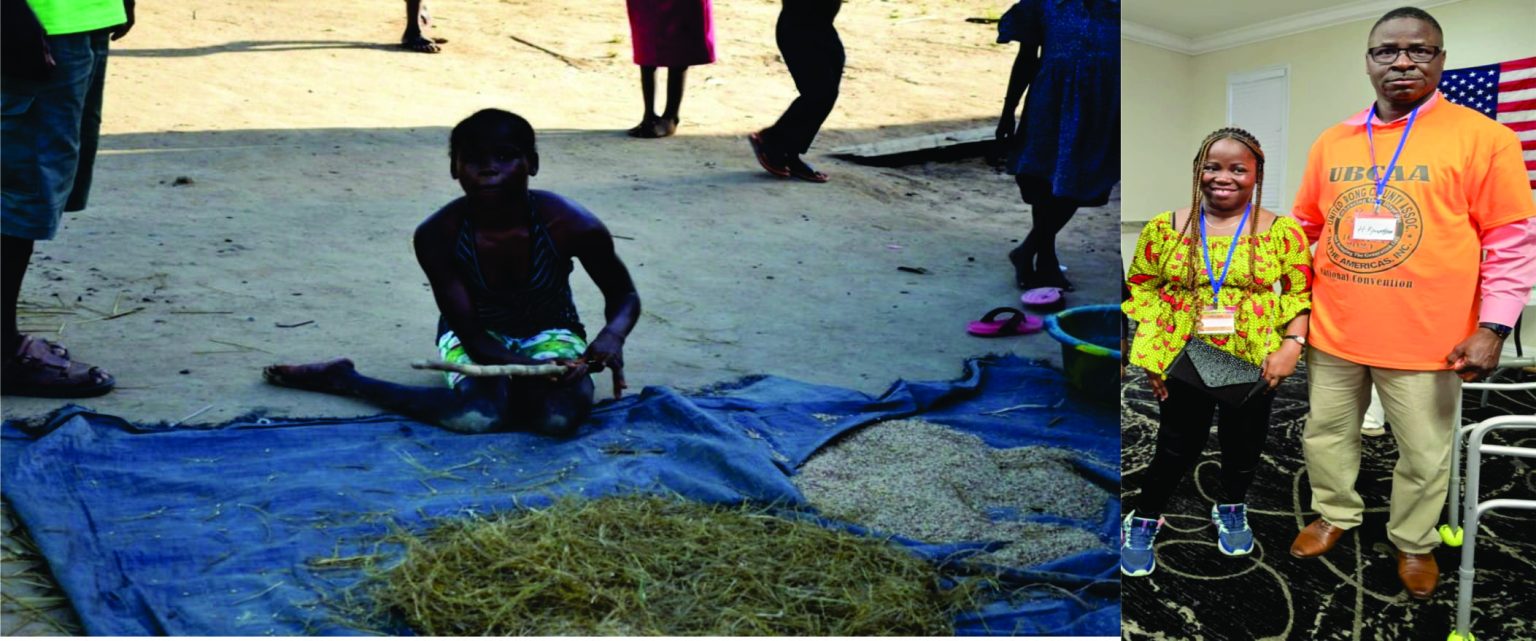Thinking Paye’s journey from a remote Liberian village to the bustling life of the United States is a testament to the transformative power of human compassion and the unwavering spirit of a young woman determined to overcome adversity. Born in 2002 amidst the turmoil of Liberia’s civil war, Thinking faced numerous challenges from the outset. A probable neurological condition left her without the use of her legs from the knees down, and the lack of accessible healthcare in her war-torn nation meant that she had to adapt to her circumstances with remarkable resilience. She learned to navigate her world on her knees, performing daily tasks and contributing to her family and community despite her physical limitations. Thinking’s story highlights the harsh realities faced by children with disabilities in developing nations, often marginalized and lacking access to essential resources.
Harrison Kpartipa, a Liberian native residing in Cedar Rapids, Iowa, became a pivotal figure in transforming Thinking’s life. During a mission trip to Liberia in 2015, he encountered Thinking and was deeply moved by her story. Recognizing the limited opportunities available to her in Liberia, he resolved to explore options for providing her with better medical care and a chance at a brighter future. Upon returning to the United States, Kpartipa approached his church, Trinity Lutheran, seeking support for Thinking. Initially, the focus was on providing mobility aids, but Kpartipa’s determination led to a more ambitious goal: securing specialized medical treatment for Thinking at the Shriners Hospital for Children in the Twin Cities.
The process of bringing Thinking to the US was a complex undertaking, requiring extensive paperwork, including securing a birth certificate, passport, visa, and guardianship documents. Kpartipa’s dedication and persistence navigated these bureaucratic hurdles, culminating in his traveling to Liberia to personally escort Thinking to Cedar Rapids. This marked the beginning of a new chapter in Thinking’s life, one filled with hope, opportunity, and the promise of a better future. Kpartipa’s selfless commitment extended beyond simply facilitating medical treatment. He took on the role of caregiver, educator, and cultural guide, helping Thinking acclimate to a completely new environment and learn essential life skills.
Thinking’s transition from rural Liberia to the United States was a dramatic shift in every aspect of her life. She had to adapt to a new language, culture, and way of living. Kpartipa’s role as a mentor and advocate was crucial during this period, easing her integration and providing her with a stable and supportive environment. He enrolled Thinking in ESL classes and patiently guided her through the nuances of American life, from basic household tasks to understanding emergency procedures. Kpartipa’s dedication to Thinking’s well-being went so far as to require him to quit his job to provide her with the full-time care and support she needed during this transitional phase.
The medical evaluation Thinking received upon arriving in the US revealed her malnourished condition, underscoring the hardships she faced in Liberia. However, the access to specialized care and a nurturing environment led to a significant improvement in her health. Miraculously, Thinking, who had never been able to walk before, began to take her first steps. This remarkable progress is a testament to the power of appropriate medical intervention and the resilience of the human spirit. Thinking’s journey showcases the profound impact that access to healthcare and supportive communities can have on transforming lives.
Thinking’s story is a powerful reminder of the importance of compassion, perseverance, and the belief in the potential of every individual, regardless of their circumstances. From struggling to navigate the challenges posed by her physical limitations and a war-torn environment, Thinking, with the unwavering support of Harrison Kpartipa, transformed her life. She embraced the opportunities presented to her, completing her high school education and pursuing higher education. Thinking’s voice, expressing gratitude for the life-altering intervention she received, resonates with the profound message of hope and the transformative power of human connection. Her journey embodies the spirit of resilience and serves as an inspiration to those who face adversity.


